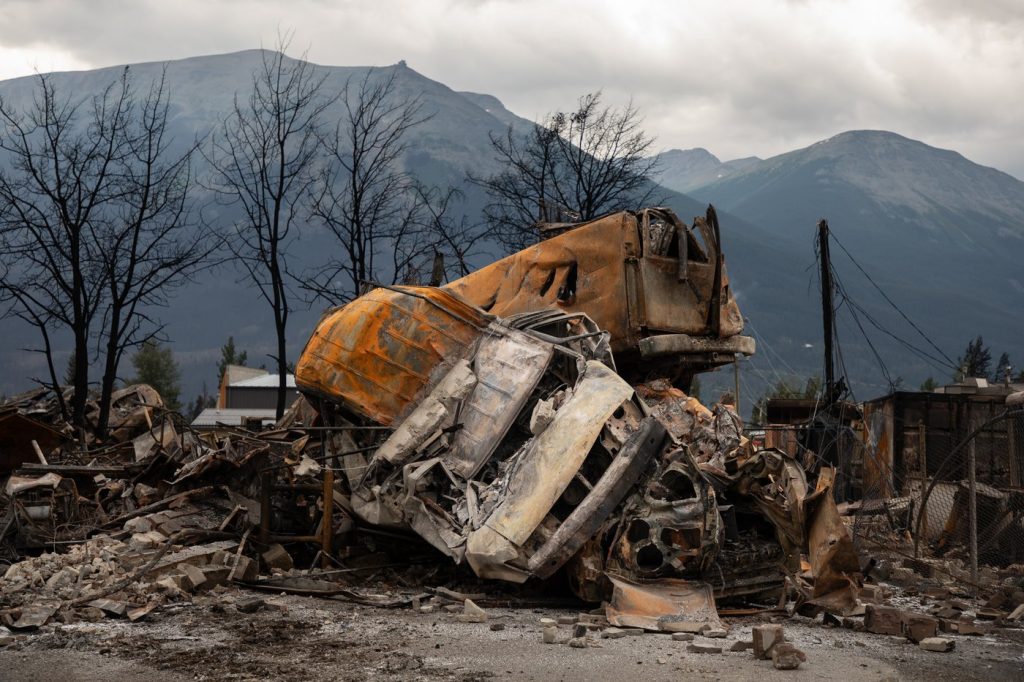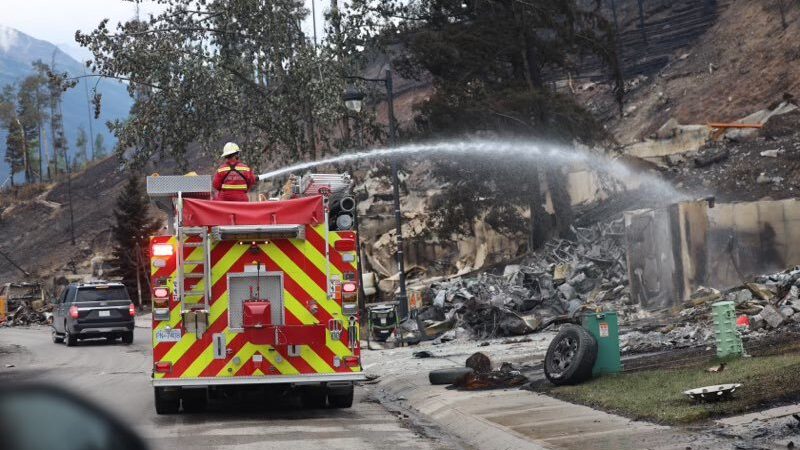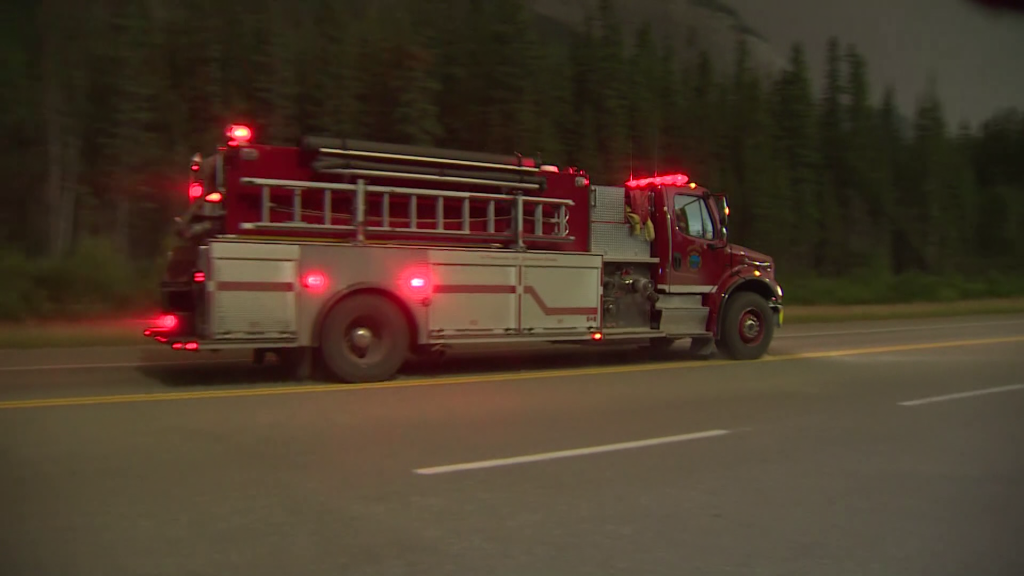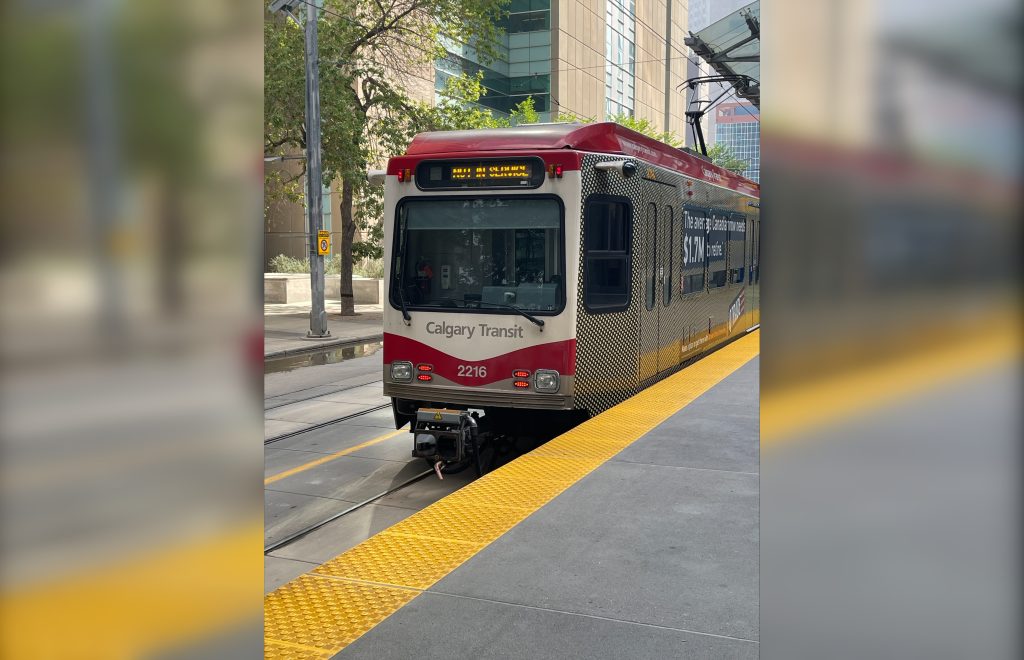‘Enough is enough’: Alberta to recruit 100 police officers for Calgary, Edmonton
Posted Apr 4, 2023 1:32 pm.
Last Updated Apr 6, 2023 6:18 am.
The Alberta government is developing a plan to hire 100 police officers for Calgary and Edmonton over the next 18 months.
In an announcement Tuesday, Premier Danielle Smith says Minister of Public Safety and Emergency Services Mike Ellis is going to work with “other members” on the plan.
Ellis says with “rough math,” the new officers will cost approximately $15 million and not be paid for by the municipalities, however, the cost has not been confirmed.
“Nothing has been written yet, but we will be making sure that these officers are going to be seen by the citizens of Calgary and Edmonton,” Ellis said.
“Unfortunately, there aren’t 100 unemployed police officers sitting on the wayside, so obviously, we’re gonna be working with the Calgary and Edmonton city police to make sure that whether they have to restructure or it becomes a hiring process.”
Smith claims the increase in crime in the province is due to the federal government’s bail policy.
“Violence in Edmonton and Calgary is getting worse. Fueled by drugs, illegal weapons, and the federal revolving door bail policy of catch and release,” Smith told reporters.
“Almost every day, Albertans are waking up to news that someone in their city has been attacked or murdered. These are people’s daughters and sons, parents, friends, and loved ones. Enough is enough.”
Smith says between July 2022 and January this year, Edmonton’s LRT and transit centres experienced an increase in violent criminal incidents of 75 per cent, while criminal activity at Calgary’s LRT stations increased 46 per cent between 2021 and 2022.
Both of these numbers have been confirmed by police in both cities.
“We refuse to let this situation stand when we see violence showing its face, so fragrantly on a daily basis, when something is essential as public transit becomes a no-go zone,” she said.
“When entire communities live in fear, a red line has been crossed. The province is prepared to do whatever it takes to restore our cities to safety.”
This comes as the city put forward “immediate” action to increase safety on CTrains after multiple incidents happened at different stations.
The government is also providing a $5 million grant to each city to keep transit station platforms and vehicles clean.
Related Video
Related Stories:
-
Calgary puts forward ‘immediate’ action to address transit safety
-
Calgary commuter considers avoiding transit amid uptick in violence
Minister Ellis says there have been over 3,600 violent occurrences by people who were out on bail, which includes around 2,200 assaults all committed by people out on bail.
“This is a direct result of the Liberal-NDP coalition and their revolving door justice policies. And it isn’t surprising. These policies have failed in every jurisdiction that they’ve been tried, from Los Angeles all the way to Vancouver,” Ellis said.
“We need jail, not bail. Enough is enough.”
Calgary Police Chief Mark Neufeld says 45 people in Calgary have committed murder since 2021, and 23 of those were on release, while seven of them were bound by firearms conditions, and two completed their probation period.
In addition to increasing the number of officers on city streets, the government is “encouraging” Calgary and Edmonton to have peace officers transfer command and control to the city police officers.
This is to “enable the police to better lead a coordinated and strategic response to the increase in violent crime on public transit.”
Alberta agreed to amendments to Criminal Code in March
In a statement to CityNews Tuesday, Diana Ebadi, press secretary for the Minister of Justice and Attorney General of Canada, said the provincial government is responsible for the “administration of justice,” which includes bail hearings and enforcing bail conditions.
She says an agreement was made on amendments to the Criminal Code “that would target repeat violent offenders and serious offences committed with firearms and other dangerous weapons” on March 10 by ministers across Canada, including Alberta.
In addition, she says the introduction of Bill C-75 has not played a role when accused persons are released on bail.
“Bill C-75 brought the Criminal Code in line with binding Supreme Court of Canada decisions and was created following significant collaboration with provincial and territorial governments. Its focus was to reduce delays within the justice system. A justice system that works efficiently is one that keeps people safe,” Ebadi said.
“The reforms will address the challenges posed by repeat violent offenders, as well as offences committed involving the use of firearms and other dangerous weapons.”
She says discussions on bail reform have been ongoing since October 2022.
“Minister (Lametti) has been clear: these reforms must ensure the safety of Canadians and respect the right to reasonable bail. Importantly, all ministers agreed that these measures must not undermine the critical work being done to address the overrepresentation of Indigenous, Black, racialized and marginalized people in our criminal justice system,” Ebadi said.
“The ministers also agreed to continue working together on non-legislative solutions that tackle the root causes of crime, including better mental health services, access to safe housing, and addictions treatment.
“Canada’s criminal justice system is a shared responsibility of the provinces and the federal government. Minister Lametti is doing his part to make sure we have a justice system that keeps Canadians safe. He trusts the Province of Alberta is committed to doing the same.”
Recruitment ‘down’ in North America, Calgary sees surge
Neufeld says the Calgary Police Service has seen “more applications than we ever have.”
“Believe it or not, they see value in the work the police do. They want to be some part of something bigger and larger than themselves and to have an impact.”
However, in Edmonton, recruiting is “way down,” according to Edmonton Police Chief Dale McFee.
“I think that’s basically based on the sentiment of sometimes the community, which is obviously different in Edmonton and Calgary,” McFee said.
“As heartfelt as this is, since we’ve lost our two officers, our recruiting has [gone] through the roof, which I wouldn’t have predicted.”
He says recruiting in North America is down and that “it’s down at a time when we need police more than we ever have.”
Read More: Funeral held for Edmonton police officers Travis Jordan and Brett Ryan
Meanwhile, through the provincial budget, it is investing around $8 million over three years to increase crisis teams, otherwise known as PACT, in Calgary and Edmonton.
PACT is a pairing of officers with mental health therapists from Alberta Health Services to respond to 911 calls where there is a mental health concern.
Around 12 PACT partnerships will be formed in each city, which is double the teams in Calgary (12 to 24) and triple in Edmonton (six to 18).
Additional police officers ‘knee-jerk’ reaction
Meanwhile, a criminologist calls the plan enacted by Smith a “band-aid” solution that doesn’t address any of the underlying issues surrounding communities in Alberta.
Kelly Sundberg, an associate professor at Mount Royal University, says the plan from the province is a “knee-jerk reaction” due to the lack of consultation from various support groups and experts.
“The issues on transit are the same issues that we see … happening in other public spaces, such as parks, libraries, and other areas that are publicly accessible. We need to have a coordinated approach to this,” Sundberg told CityNews.
He says groups such as researchers at universities and colleges, Alberta Health Services, support services and Indigenous leaders need to be involved, or the problem will continue to persist.
“These groups need to come together and come up with a more holistic plan so that we can address all of these concerns instead of taking knee-jerk, one-off, band-aid solution. Throwing a little money here on a pilot project or another one here is absolutely ridiculous,” Sundberg said.
“No more of this guessing and politicization of problems. We need to come together and think about what we’re doing.”
He says the increase in officers should also include increases in lawyers and judges and court time, and other public services, along with an addition of community engagement. Areas such as mental health, addiction prevention, life skills, and ways for people to address major issues are needed, Sundberg says.
“We have to think of what is the best way to address a criminal justice concern outside of incarcerating people, and so that we truly incarcerate those who need to be incarcerated, but those other people are given the support that they need,” he said.
“People are dying because of this. It is time that we take an intelligence-led approach, a coordinated approach, a well-informed approach, and put all hands on deck and stop the politicking and stop the knee-jerk responses to these major issues.”
Alberta NDP Leader Rachel Notley says more can be done and adds the funds the UCP is putting into the program is the same amount it took away years before.
“So in addition to that, we know that crime in our downtown cores, in particular, has grown as a result of greater instability and community fragility arising from … the fact that this UCP government stopped funding affordable housing the way we had originally planned,” Notley told reporters Tuesday.
“They cut affordable housing, they cut rent supplements, they pushed people onto the street, and they started playing around with eligibility for income support. They’ve created more crisis in many communities.”
-With files from Deejay Todd
Editor’s note: This story has been updated to include comments from the office of the Minister of Justice and Attorney General of Canada on Wednesday, April 5, 2022








